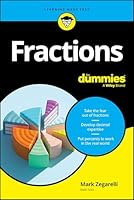
Web Microanalysis of Big Image Data
- Length: 197 pages
- Edition: 1st ed. 2018
- Language: English
- Publisher: Springer
- Publication Date: 2018-02-24
- ISBN-10: 3319633597
- ISBN-13: 9783319633596
This book looks at the increasing interest in running microscopy processing algorithms on big image data by presenting the theoretical and architectural underpinnings of a web image processing pipeline (WIPP). Software-based methods and infrastructure components for processing big data microscopy experiments are presented to demonstrate how information processing of repetitive, laborious and tedious analysis can be automated with a user-friendly system. Interactions of web system components and their impact on computational scalability, provenance information gathering, interactive display, and computing are explained in a top-down presentation of technical details. Web Microanalysis of Big Image Data includes descriptions of WIPP functionalities, use cases, and components of the web software system (web server and client architecture, algorithms, and hardware-software dependencies).
The book comes with test image collections and a web software system to increase the reader’s understanding and to provide practical tools for conducting big image experiments.
By providing educational materials and software tools at the intersection of microscopy image analyses and computational science, graduate students, postdoctoral students, and scientists will benefit from the practical experiences, as well as theoretical insights. Furthermore, the book provides software and test data, empowering students and scientists with tools to make discoveries with higher statistical significance. Once they become familiar with the web image processing components, they can extend and re-purpose the existing software to new types of analyses.
Each chapter follows a top-down presentation, starting with a short introduction and a classification of related methods. Next, a description of the specific method used in accompanying software is presented. For several topics, examples of how the specific method is applied to a dataset (parameters, RAM requirements, CPU efficiency) are shown. Some tips are provided as practical suggestions to improve accuracy or computational performance.
Table of Contents
Chapter 1: Introduction to Big Data Microscopy Experiments
Chapter 2: Functionality of Web Image Processing Pipeline
Chapter 3: Example Use Cases
Chapter 4: Components of Web Image Processing Pipeline
Chapter 5: Image Processing Algorithms
Chapter 6: Interoperability Between Software and Hardware







